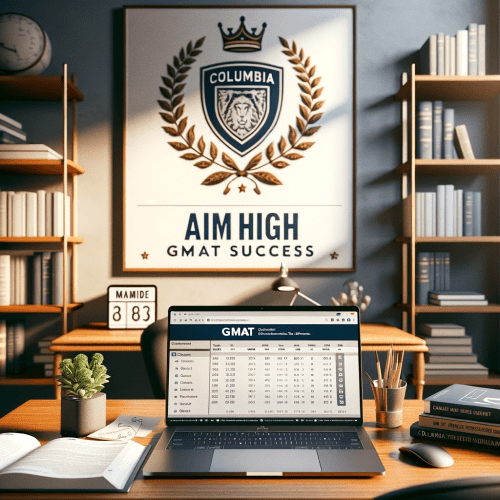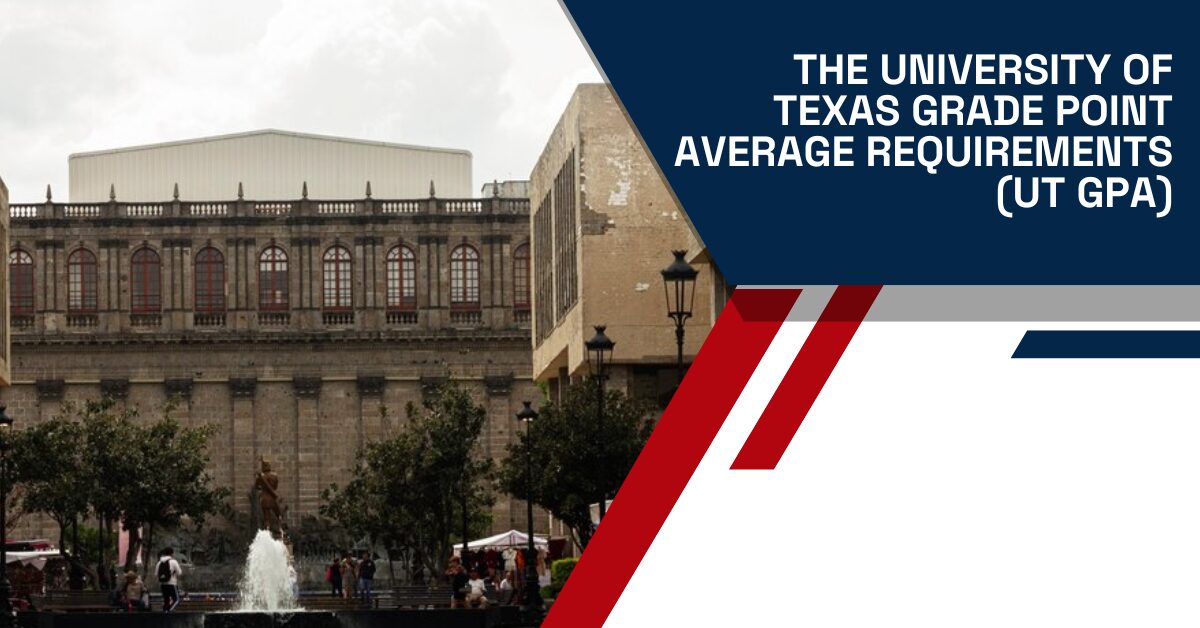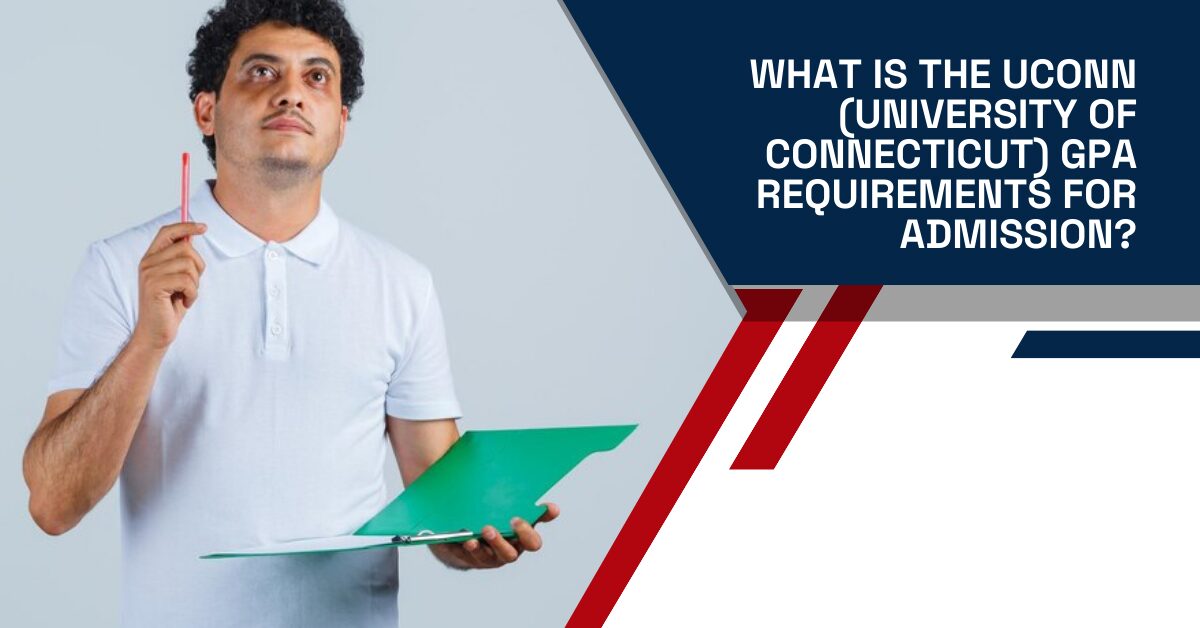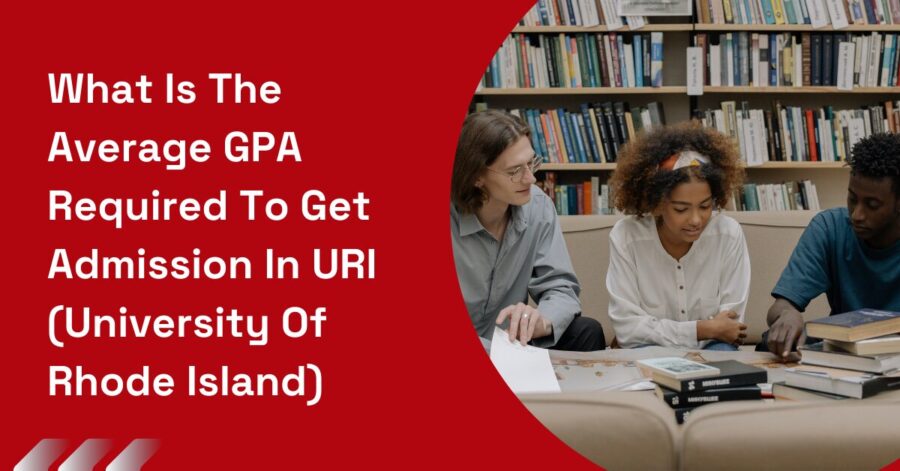26 November 2023
7 minutes read
Columbia MBA GMAT Score: Navigating Admissions and Class Profiles

Worried about the cost of Studying Abroad?
Sign up to access 25 game-changing scholarships that could cover your costs.

Introduction
Embarking on the journey to earn an MBA from Columbia Business School is both an exciting and challenging endeavor. The path to admission is competitive, with a significant emphasis placed on the GMAT score.
This comprehensive blog explores the multifaceted role of the GMAT score in the Columbia MBA admission process, class profiles, and the overall impact it has on the academic and professional journey of a Columbia MBA student.
Stuck on How to Pick Your Ideal College?
Sign up to access your tailored shortlist and simplify finding your ideal college.

Columbia Business School MBA: Decoding the GMAT Score and Its Impact on Your MBA Journey
The Role of GMAT Scores in the Columbia MBA Admission Process
The GMAT score is an integral part of the Columbia MBA admission process. It serves as a measure of an applicant’s academic aptitude and readiness to tackle the rigorous curriculum of the MBA program.
With an average GMAT score for the incoming class usually hovering around 729, it’s clear that Columbia values high academic standards. Prospective students should aim to score at or above this average to increase their chances of admission.
However, it’s crucial to understand that Columbia takes a holistic approach to admissions. While a high GMAT score is advantageous, the school also evaluates candidates based on their work experience, leadership skills, and overall fit with the program’s culture.
Importance of a Strong GMAT Score
Achieving a strong GMAT score is essential for gaining admission to Columbia Business School’s MBA program. This score is a critical component of the application, as it reflects not only the applicant’s quantitative and verbal skills but also their ability to think critically and solve complex problems.
For the class of 2023, the average GMAT score was 729, indicating the program’s high academic expectations. Applicants should focus on excelling in the GMAT to enhance their profiles, but they should also remember that Columbia values diversity in its class. Therefore, a slightly lower score may be offset by unique experiences or exceptional achievements in other areas.
GMAT Score Trends and Admission Strategies
Over the years, the average GMAT score for Columbia’s MBA program has shown a slight upward trend, reflecting the increasing competitiveness of the application pool.
Applicants should monitor these trends to understand the evolving standards of the admission process. A strategic approach to the GMAT involves early preparation, understanding the exam’s structure, and focusing on areas of weakness. Additionally, applicants should consider retaking the GMAT if their initial score is significantly below the average of the previous incoming class.
Class Profile 2023: A Glimpse into the Columbia Business School MBA Class
The class profile for the Columbia MBA program is a rich tapestry of diverse experiences, academic achievements, and professional backgrounds, with the GMAT score serving as a common benchmark.
The class of 2023, for instance, boasts a range of international students, varied undergraduate majors, and an assortment of professional experiences, from finance to technology and entrepreneurship.
Diversity in the MBA Class
Columbia Business School prides itself on the diversity of its MBA class. The GMAT scores, while important, are just one aspect of a profile that includes varied educational backgrounds, professional experiences, and cultural perspectives.
This diversity enriches the learning experience, as students bring different viewpoints and expertise to classroom discussions. Prospective students should view their unique backgrounds as an asset in their applications, demonstrating how their experiences will contribute to the diverse tapestry of the Columbia MBA class.
Professional Experience and Academic Backgrounds
The professional experience and academic backgrounds of Columbia MBA students are as diverse as their nationalities. The class profile typically includes individuals with several years of work experience in industries ranging from finance and consulting to technology and non-profit.
Their undergraduate studies may span from business and economics to liberal arts and engineering. This diversity creates a dynamic learning environment, where students can gain insights from peers with different perspectives and expertise.
Applicants should highlight their unique professional and academic experiences in their applications, showcasing how these experiences have prepared them for an MBA and will add value to the class.
See how Successful Applications Look Like!
Access 350K+ profiles of students who got in. See what you can improve in your own application!

MBA Application Deadlines and GMAT Preparation for Columbia’s 2023 Intake
Understanding the MBA application deadlines is crucial for prospective students. Columbia operates on a rolling admissions process, meaning applications are reviewed as they are received.
This system places a premium on submitting applications early, as it increases the chances of admission before the class fills up. For those targeting the 2023 intake, it’s important to start GMAT preparation well in advance to meet these deadlines.
Effective GMAT Preparation Strategies
Effective GMAT preparation is key to securing a spot in Columbia’s MBA program. This involves understanding the test format, identifying personal strengths and weaknesses, and creating a study plan that allows for gradual improvement.
Utilizing official GMAT prep materials, enrolling in preparation courses, and taking regular practice tests can significantly improve scores. Time management is a critical skill for the GMAT, and practice tests help in developing this skill. Applicants should also consider joining online forums and study groups for additional support and resources.
Timing Your Application
Timing the application is as important as the application contents. Applicants should plan their GMAT preparation so that they have enough time to retake the test if necessary, without missing the application deadlines.
Early application rounds are generally less competitive, so aiming for these can be a strategic move. However, it’s essential to balance this with submitting the best possible application – if more time is needed to improve the GMAT score or to strengthen other areas of the application, it may be worth waiting for a later round.

Start Your University Applications with Ambitio Pro!
Get Ambitio Pro!
Begin your journey to top universities with Ambitio Pro. Our premium platform offers you tools and support needed to craft standout applications.
Unlock Advanced Features for a More Comprehensive Application Experience!

Start your Journey today

Start your Journey today
Beyond the GMAT: Comprehensive Evaluation for Columbia’s MBA Program
Columbia’s MBA admissions process is holistic, taking into account a wide range of factors beyond the GMAT score. This includes professional achievements, leadership potential, clarity of career goals, and overall fit with the program.
The Holistic Admission Approach at Columbia
Columbia Business School looks for candidates who demonstrate leadership potential, professional achievements, and a clear understanding of how an MBA will advance their career goals.
This means that in addition to a strong GMAT score, applicants should showcase their career progression, impact in their current and past roles, and leadership experiences.
Essays, recommendations, and interviews are opportunities to demonstrate these qualities and to show how the applicant’s goals align with what Columbia’s MBA program offers.
Career Goals and MBA Fit
Articulating clear career goals is crucial for MBA admissions at Columbia. Applicants must demonstrate how the MBA program will facilitate their career transition or advancement.
This requires a deep understanding of the program’s curriculum, specializations, and the opportunities it offers for networking, internships, and experiential learning. Showing a clear connection between one’s career aspirations and the resources available at Columbia can significantly strengthen an application.
Stuck on How to Pick Your Ideal College?
Sign up to access your tailored shortlist and simplify finding your ideal college.

Employment Outcomes: The Impact of a Columbia MBA and GMAT Score
- High Employment Rates: Graduates of Columbia Business School generally enjoy high employment rates post-MBA. This reflects the value employers place on the Columbia MBA credential, which is often influenced by the academic rigor indicated by GMAT scores.
- Competitive Salary Packages: Columbia MBA graduates are known to secure competitive salaries across various industries. A strong GMAT score, as part of a successful MBA application, is indicative of the academic and analytical skills that are highly valued in the job market.
- Desirable Positions in Top Firms: Graduates often find themselves in sought-after positions at top global firms, especially in finance, consulting, and technology. These firms frequently regard a high GMAT score as a marker of potential for high performance.
- Global Career Opportunities: The Columbia MBA opens doors to global career opportunities. A good GMAT score can be particularly advantageous for roles in international markets where academic prowess is a key differentiator.
- Wide Range of Industries: Alumni are spread across a wide range of industries, including finance, consulting, technology, healthcare, and more. This diversity illustrates the adaptability and relevance of skills honed during the MBA program, often initially demonstrated through GMAT performance.
- Leadership Roles: Many graduates ascend to leadership and executive positions. The analytical and problem-solving skills, often first evidenced by GMAT scores, are essential in these roles for strategic decision-making and effective leadership.
- Impact on Career Transitions: For those looking to switch careers, the Columbia MBA aided by a solid GMAT score can be a pivotal factor. It provides the academic foundation and network necessary for successfully transitioning to a new industry or function.
- Networking and Alumni Connections: The MBA program offers extensive networking opportunities. A high GMAT score that contributes to admission into such a prestigious program also opens doors to a vast network of alumni, which can be invaluable for career advancement.
- Innovation and Entrepreneurial Ventures: Graduates are also well-equipped to venture into entrepreneurship or innovate within existing organizations. The comprehensive skill set developed during the MBA, signaled in part by the GMAT score, is crucial for success in these areas.
- Long-Term Career Growth: The impact of a Columbia MBA extends beyond immediate post-graduation employment. It fosters long-term career growth, with the GMAT score serving as an early indicator of the potential for continued professional development and success.
- Employer Perception and Credibility: Employers often perceive a high GMAT score and a Columbia MBA as indicators of strong intellectual abilities and professional dedication, enhancing the credibility of the graduate in the professional world.
- Access to Exclusive Job Markets: Columbia’s reputation and the high standard set by GMAT scores can grant access to exclusive job markets and roles that are typically not accessible to graduates from less prestigious institutions.
- Enhanced Problem-Solving Skills: The rigorous academic training at Columbia, for which the GMAT is a prerequisite, enhances problem-solving and critical thinking skills that are crucial in navigating complex business challenges in various roles.
- Increased International Mobility: For those seeking careers in international markets, a Columbia MBA, complemented by a strong GMAT score, significantly increases international mobility and attractiveness to global employers.
- Preparation for Advanced Careers: The combination of a Columbia MBA and a good GMAT score prepares graduates for advanced career paths in high-level management, consulting, and other areas where strategic thinking and analytical skills are paramount.
Conclusion
The Columbia MBA GMAT score is a critical aspect of the application process, influencing not only the chances of admission but also shaping the class profile and impacting career opportunities post-graduation.
However, it’s important to remember that Columbia adopts a holistic approach to admissions, evaluating candidates on various dimensions. Prospective students should therefore strive for a strong GMAT score while also building a well-rounded application that showcases their unique experiences, professional achievements, and career aspirations.
FAQs
Q1: What is the average GMAT score for Columbia Business School’s MBA program?
The average GMAT score for Columbia’s MBA program is typically around 729, reflecting the competitive nature of the admissions process.
Q2: How important is the GMAT score in Columbia’s MBA application?
The GMAT score is a crucial part of the application, but Columbia also considers other factors like work experience, academic background, and leadership potential.
Q3: Can I apply to Columbia’s MBA program with a GRE score?
Yes, Columbia Business School accepts both GMAT and GRE scores for MBA admissions.
Q4: What is the profile of a typical student in Columbia’s MBA program?
Students in Columbia’s MBA program often have diverse professional backgrounds, strong academic records, and significant work experience.
Q5: Are there any preparation tips for the GMAT to apply for Columbia’s MBA?
Effective preparation involves understanding the exam format, practicing with mock tests, and possibly seeking guidance from a GMAT prep course or tutor.
Table of Contents
- •Introduction
- •Columbia Business School MBA: Decoding the GMAT Score and Its Impact on Your MBA Journey
- •MBA Application Deadlines and GMAT Preparation for Columbia's 2023 Intake
- •Beyond the GMAT: Comprehensive Evaluation for Columbia's MBA Program
- •Employment Outcomes: The Impact of a Columbia MBA and GMAT Score
- •Conclusion
- •FAQs

Almost there!
Just enter your OTP, and your planner will be on its way!
Code sent on
Resend OTP (30s)

Your Handbook Is Waiting on WhatsApp!
Please have a look, and always feel free to reach out for any detailed guidance
or
Click here to download
Meanwhile check out your dashboard to access various tools to help you in your study abroad journey

Get Ambitio Pro!
Unlock Advanced Features for a More Comprehensive Application Experience!

Start your Journey today
Find your Dream school now⭐️



Almost there!
Just enter your OTP, and your planner will be on its way!
Code sent on
Resend OTP (30s)














 Ambitio Pro
Ambitio Pro
 Ambitio Elite
Ambitio Elite























